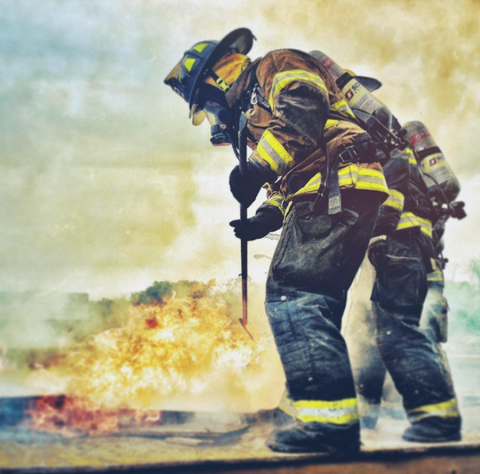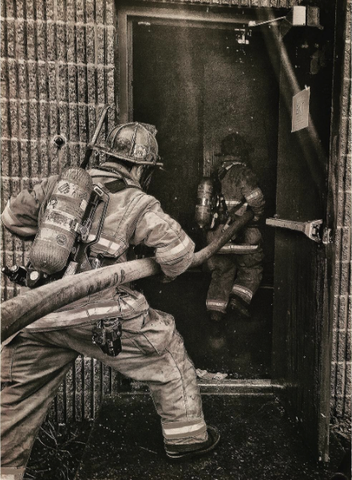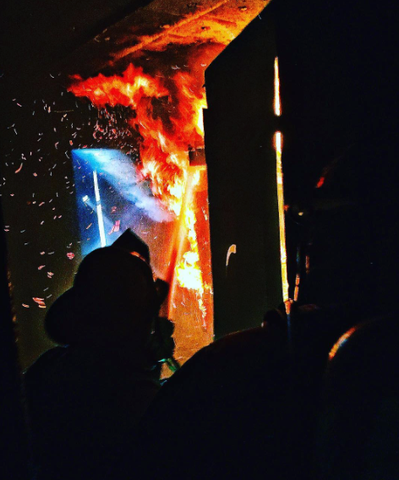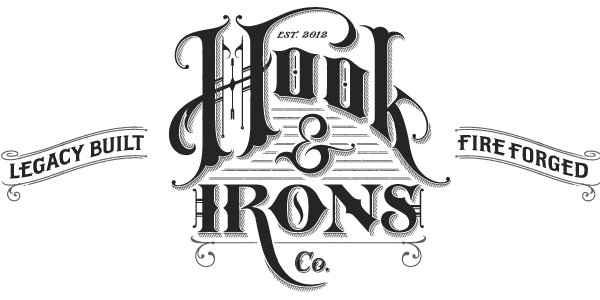7 Lessons Seniority Has Taught Me June 08 2017, 8 Comments
A firefighter's worst critic, in all cases, should be himself. No matter the error or the accolade, constant self-evaluation and a global reflection of actions and inactions after the fire should direct your thoughts on what you missed or what you could do better next time. What follows are a few truths I have experienced in my own career.

1. Losing track of time on a fire ground is a dangerous thing.
For me, this is the single most difficult thing to maintain. Personally, I have lost time in both ways--compression and elongation. I can remember a time where I watched my firefighters struggle to force a steel door and made them abandon a perfectly good plan, only to move on to a plan that was not as good. In the end, after I had calmed down and when I listened to the tapes, I realized that an unreasonable amount of time had not passed and I had let my anxiety amplify the passage of time. Lack of experience had caused me to doubt the tactic.
Conversely, I have begged the Chief for a 'few more minutes' during a firefight when afterwards I realized that I was so focused and wanted my tactic to work so badly that I let time get away from me.
So what is the answer? We can't keep glancing at our watch while we're working, but we can fight to stay calm--fight to control our breathing and fight to stay in control and aware of the time. Experience brings calm. Calmness brings clarity. And clarity allows you to know if a plan is working or if it should be abandoned. This goal is even more difficult and sometimes impossible for the many short-staffed crews around the country whose officers have to work performing two and three jobs in addition to managing the safety and efficiency of their crews.
2. When things are going wrong, don't go with them.
If you have been in the fire service for any length of time, you are guilty of this. Usually, it's stubbornness or timidity that is the culprit. Admittedly, I have been guilty of this as well. As a new Captain I operated on a fire in an apartment building with an enclosed hallway where I watched the attack crew with a junior officer try and deploy their hotel roll on the fire floor in a dirty hallway with zero visibility. I knew this was wrong. I knew it was more than likely doomed to fail and I did not stop it because I did not want to step on the officer's toes. At that moment, I became just as guilty as they were for choosing a tactic that would more than likely fail and was dangerous to boot. The fire, which could have been extinguished in under 15 minutes, took over 45 minutes to put under control. I learned a lesson that day that I will take with me to retirement.

3. Manipulating the word 'Safety' to validate inaction is inexcusable.
There is an epidemic in the fire service right now and there are instructors across this country railing against the safety officers and various studies. They are causing firefighters to second guess cautious aggression in the name of safety. The hallmarks of these officers are:
Using the benefit of hindsight and complete information afterwards to demonize an action that was taken with incomplete information.
They use studies and articles to validate their points, but they have never actually tried to replicate the studies, either on the fireground or in the training tower. They operate on the faith of the author and the study and treat it as gospel. Well, I have faith in God, but the rest of it, I will trust after I verify.

More importantly, these 'safety officers' are high enough in the administration to effectively change the fighting posture of your department. This may be good or bad based on many variables, but to continue the analogy, I would want to be on the department that trains for the 1st or 2nd round knockout, rather then a victory at the end of a fight by decision.
4. Festina Lente.
The latin phrase translates to, hurry slowly. I have found no other phrase that better captures the attitude that firefighters should strive for on the fireground. The term 'hurry slowly' allows firefighter to manage time and allow the countless clues and signs to be internalized before decisions are made. 'Hurry slowly' allows the experience of bread and butter fires to be tempered with a cautious check to see if anything has occurred that would make this fire different from the others.
Here are some great examples of 'Festina Lente' in action:
- Conducting thorough 360.
- Having a good look at smoke production and volume.
- Making a concerted effort from the exterior to locate the fire inside.
- Asking a quick question or two to an escaped occupant on location of fire, other victims, and hazards.
- Slowing your apparatus as you approach the fire to study the building and set up proper placement. This might even mean exiting the apparatus and guiding the apparatus through smoke and other hazards.
- Maintaining accountability of your crew at each new compartment you enter inside the house.
Festina lente and fireground discipline go hand in hand. For me, it is the frame of mind that I'm always trying to achieve and the two words "Hurry Slowly" which singularly are opposites are what marry the mind and body on the fireground--move with a sense of purpose, but keep your mind able to constantly evaluate and analyze the situation.
5. Computers and technology have taken us away from the critical aspects of the job.
By now, I'm not sure there is a fire department in this country that hasn't embraced online training. The stronger departments use it to supplement hands on training. The weaker departments use it as a check box to show all the work that is being done and to maintain certifications that take a department's limited manpower away from meaningful training.
The danger in online training is that the computer creates a disconnect between a department and their firefighters and it standardizes a job that is anything but standard.
Additionally, anyone with half a brain should question the validity of computer training meant to teach hands-on skills unless the hands-on skill is 'how to click a mouse'.

Great athletes are not created by reading play books. They are created with hard work and repetition which creates muscle memory and confidence. Is the fire service so different?
6. Lead your firefighters in. Follow them out.
Their are many adages that accompany leadership and good leaders, but for the fire service this term is both metaphorical and real. As an officer, it was always my job to show them that I wouldn't make them do anything I wouldn't do myself. In a dark and hot house when we couldn't find the fire I would occasionally, if the situations dictated, put myself slightly in front of the nozzleman feeling through the smoke for that hallway or door--sounding the floor and guaranteeing safe passage for my guys. It is vital to be a good detective, find the fire, and take the burden off of your firefighters shoulders. Additionally, good officers lead and direct the search. They send their firefighters to search rooms, but never so far away that they can't be reached by voice, sight or touch. And when the task is complete, they follow them out. We have lost firefighters on my own department and on many others around the country because the officer of the crew did not follow this adage.

7. Firefighters may respect the badge, but they trust experience.
The fire department ladder is only three or four rungs depending on the department you work for. It is a much shorter climb than employees who are clawing their way to the top of corporate America. Ascending through the ranks of the fire service can be done on many career departments in less than fifteen years and with only three tests. In some departments a motivated employee can become a Chief in as little as twelve years. What that means is these employees have reached their terminal rank before they've reached the midpoint in their career. The question begs to be asked: Can a Chief who has more of a career ahead of him than behind be experienced enough to command the respect of the men and women who are in the trenches everyday? The answer is maybe, but I would say it's doubtful. Have they been on busy units their entire career? Have they packed as much valuable experience into their time as possible? Or have they used that same system in which they catapulted to the top to hide away from Operations and keep from running calls and gaining that daily experience that is so necessary?

Firefighters know. And they will let you know the first time you command them to do something that you learned in a book that contradicts and conflicts with the realities that they have faced.
Conversely, there is no better feeling than getting a 'thank you' from a senior firefighter whom you have guided correctly and allowed them to operate in a way that parallels their experience and knowledge and acknowledges and utilizes their capabilities. That 'thank you' from a respected peer is the only accolade I've ever hoped for in the fire service.

***All photos were generously shared by Captain Brian Bastinelli of the Harrisburg Bureau of Fire.

Comments
pushes my button. Lack of experience and education prompts officer’s to make poor decisions. After all, It’s easier to be SAFE than educated. SMH.
Kenny on June 15 2017 at 11:20PM
Robert Ortega on June 12 2017 at 08:24PM
Great read George !!! I remember that fire you talked about and I remember hearing it on the radio at 47 !!! Keep LEADING by example and the ROGUE firemen or Jedi of the department will follow !!! And of course keep producing the OUTSTANDING fire attire known as Hooks & Iron . I just visited Sarasota and visited their station 1 and it made me PROUD when they asked me if the founder of Hooks & Iron worked for my department. Of course I answered " why yes he does !!! "
Retired FF on June 10 2017 at 08:42PM
There is no such thing as “It should be or it might be”……..It either IS or it ISN’T is what I l preached to the new probies.
I remember one of our engines was brought back the shift before mine from the shop for PM. As the off going shift was leaving, I asked who had had front line. The response I got was, “It went out for PM yesterday, everything SHOULD be good to go”….needless to say they backed it in when it returned from PM without checking a single thing……when I turned the batteries on, I immediately noticed that the tank level lights were not on……..The mechanic who did the PM had to drain the water tank when he worked on the rig………they never bothered to check the truck over. From 6PM that evening until I started my truck check the next mornign at shift change, , the tank was empty.
If they had caught a fire during that time……………….
Sam Wolfe on June 09 2017 at 03:12PM
I’ve been to a few fires through a period of a few decades, a lot of them as a Company Officer and Chief Officer. I’ve got to say this is one of the best pieces, articles, blogs, ect. that I have read in quite some time. Thank you sir for your time, experience, and wisdom. You summarized a lot of pertinent issues in the space of a few words and nailed it. I hope your readership is paying attention. This one is gold!
Pop Pop on June 09 2017 at 02:07PM
This is an amazing piece! So true on every point and situations described. One of my sons always tells me, “Pop you have to be aware of everything around you”. “You can’t see the forest for the trees” comes to mind, but I like “Hurry Slowly” better. I’ve heard that phrase and different one’s like it all through out my career, THANK YOU.
Thanks Again Just another Old TimerAll of us should strive and survive to have that sweet smell of smoke that permeates our gear.
This blog piece should be the introduction in every training manual and book.
“Festina Lente” Please create a T shirt if you haven’t already, I want one.
Neil Tito on June 09 2017 at 02:04PM
Couldn’t agree more with number 7. As an employee of a large dept that has tremendous turnover I’m seeing peers and subordinates promote at an excelerrated rate to accommodate the depts needs. This is extremely alarming to me, because the dept is losing invaluable experience and not getting that expierence in return. The culture is promote as fast as you can and if your not trying to its a bad thing. Pardon my french but that’s BS, we are first and foremost firemen and should be versed and experienced in all aspects before we instruct or direct someone to execute one of those aspects.
Chris on June 09 2017 at 01:30PM
Good read!!!
Jorge troyano on June 09 2017 at 12:05AM
Wow!!! Good words Chief! Really good stuff! You’ve hit the Nail right on the head….